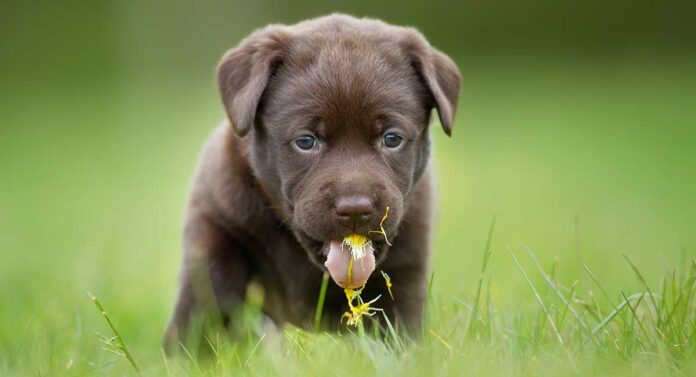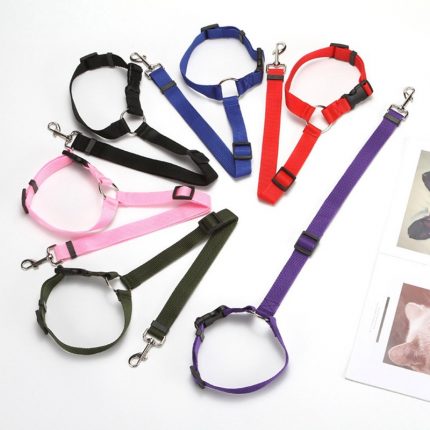Puppies are known for their curious nature and tendency to explore the world around them using their mouths. While it is common for puppies to chew on various objects, it can be concerning when they develop a habit of eating stones. This behavior may leave pet owners puzzled and worried about the potential dangers it poses to their furry companions. Understanding the reasons behind Why Do Puppies Eat Stones crucial in order to prevent any harm to the puppies and ensure their overall well-being.
The Curious Case of Why Do Puppies Eat Stones
Here are some of the reasons of why do Puppies Eat Stones:
1. Exploring Teething as a Possible Cause
One of the primary reasons Why Do Puppies Eat Stones is teething. Just like human babies, puppies experience discomfort and pain as their baby teeth are replaced by adult teeth. During this teething phase, puppies have an innate urge to chew on objects to alleviate the discomfort. Stones, with their hard and textured surfaces, may offer temporary relief to their sore gums. The pressure exerted by chewing on stones can provide a soothing sensation, similar to the way teething rings or chew toys can help human infants.
 It is essential for pet owners to recognize and address this behavior during the teething phase. Providing appropriate teething toys designed for puppies can help redirect their chewing instincts towards safe alternatives. These toys are specifically designed to provide relief to their gums and facilitate the natural process of shedding baby teeth. By offering suitable teething toys, pet owners can help prevent puppies from turning to stones as a source of comfort during this challenging period.
It is essential for pet owners to recognize and address this behavior during the teething phase. Providing appropriate teething toys designed for puppies can help redirect their chewing instincts towards safe alternatives. These toys are specifically designed to provide relief to their gums and facilitate the natural process of shedding baby teeth. By offering suitable teething toys, pet owners can help prevent puppies from turning to stones as a source of comfort during this challenging period.
2. Boredom and the Need for Stimulation
Another significant factor contributing to puppies eating stones is boredom. Puppies are naturally curious and energetic creatures that require ample mental and physical stimulation. When left without appropriate outlets for their energy, they may resort to destructive behaviors, including stone-eating, as a means of entertainment.
To prevent boredom-induced stone-eating, pet owners should ensure that puppies have a stimulating environment. This can be achieved by providing a variety of interactive toys, engaging in regular play sessions, and incorporating mental stimulation activities such as puzzle toys or treat-dispensing toys. Additionally, regular exercise is crucial to help burn off excess energy and keep puppies physically and mentally satisfied. By providing a stimulating environment and engaging in interactive play, pet owners can help redirect their puppies’ attention away from stones.
3. The Role of Pica in Stone-Eating Behavior
Puppies may also eat stones due to a condition called pica, which is characterized by the consumption of non-food items. Pica can be caused by nutritional deficiencies or underlying medical conditions. In some cases, puppies may eat stones as a result of an imbalance in their diet or a lack of essential nutrients.
To address pica-related stone-eating behavior, it is crucial to ensure that puppies are receiving a balanced and nutritious diet. Consultation with a veterinarian can help identify any nutritional deficiencies and determine the appropriate dietary adjustments or supplements. Providing a well-rounded diet that meets the specific nutritional needs of puppies can help reduce the likelihood of pica and its associated behaviors, including stone-eating.
Practical Recommendations to Prevent Why Do Puppies Eat Stones
1. Provide Appropriate Teething Toys
During the teething phase, it is crucial to offer puppies suitable teething toys that are specifically designed to provide relief to their sore gums. Look for toys made of soft rubber or silicone that are safe for chewing. Avoid toys that are too hard or small, as they may pose a choking hazard. By redirecting their chewing instincts towards these toys, puppies are less likely to turn to stones for comfort.
2. Create a Stimulating Environment
To combat boredom-induced stone-eating, it is essential to create a stimulating environment for puppies. Provide a variety of interactive toys that challenge their mental abilities and keep them engaged. Puzzle toys, treat-dispensing toys, and toys that make noise can be particularly effective in keeping puppies entertained. Additionally, rotate the toys regularly to maintain their novelty and prevent boredom.
3. Engage in Regular Play and Exercise
Regular play and exercise are essential for puppies to release their energy in a healthy way. Engage in interactive play sessions with your puppy, using toys such as balls or frisbees to keep them physically active. Consider taking them for daily walks or engaging in other forms of exercise suitable for their age and breed. A tired puppy is less likely to engage in destructive behaviors, including stone-eating.
4. Ensure a Balanced Diet
To prevent stone-eating caused by nutritional deficiencies, it is vital to provide puppies with a balanced and nutritious diet. Consult with a veterinarian to determine the appropriate type and amount of food for your puppy’s specific needs. Avoid feeding them table scraps or low-quality commercial pet foods that may lack essential nutrients. Consider incorporating high-quality puppy food that meets their nutritional requirements to reduce the risk of pica-related stone-eating behavior.
5. Supervise Outdoor Activities
When taking your puppy outdoors, it is crucial to supervise their activities closely. Keep a watchful eye on them to prevent them from accessing areas where stones may be present. If you notice your puppy showing interest in stones, redirect their attention to a safe toy or engage them in a game to distract them from the stones. By being vigilant and proactive, you can minimize the chances of stone ingestion.
6. Regular Veterinary Check-ups
Regular veterinary check-ups are essential to monitor your puppy’s overall health and address any underlying medical issues that may contribute to stone-eating behavior. Your veterinarian can conduct thorough examinations, offer nutritional guidance, and recommend appropriate supplements if necessary. They can also provide advice on behavior management strategies tailored to your puppy’s specific needs.
Our featured products:
By implementing these practical recommendations, pet owners can effectively prevent stone-eating behavior in puppies. Remember, early intervention and consistent training are key to ensuring the well-being and safety of your furry friend.
 Why Do Puppies Eat Stones – Conclusions
Why Do Puppies Eat Stones – Conclusions
Puppies may eat stones due to teething discomfort, boredom, or underlying medical conditions such as pica. Recognizing the reasons behind Why Do Puppies Eat Stones is essential for pet owners to take proactive measures in preventing stone-eating and ensuring the well-being of their furry companions. By providing appropriate teething toys, creating a stimulating environment, and maintaining a balanced diet, pet owners can redirect their puppies’ chewing instincts towards safe alternatives and reduce the potential risks associated with stone ingestion. Regular veterinary check-ups and consultations are also recommended to address any underlying medical issues that may contribute to stone-eating behavior. With proper care and attention, pet owners can help their puppies grow into happy and healthy adult dogs.
















 Why Do Puppies Eat Stones – Conclusions
Why Do Puppies Eat Stones – Conclusions